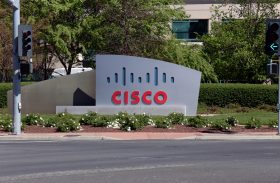After VMWare Buys Heptio, What Will Cisco Do?

Is Cisco "asleep at the wheel" in the container-management technology space? That's what one insider suggested to me after VMware announce yesterday that it's buying Kubernetes-based container management specialist Heptio. Financial details were not disclosed.
VMware announced the deal Tuesday at the VMworld 2018 Europe summit in Barcelona, saying that Heptio will "open new channels for VMware to further engage the open-source community and harden upstream Kubernetes as well as support the cloud-native needs of the largest enterprises in the world."
The Big Kubernetes Play
It's a savvy move. As discussed in August at VMworld, VMware has long been subject to the "existential threat" of container-management technologies such as Kubernetes, an open-source project that enables the management and scaling of containerized applications across cloud systems. The fear is that container technology and Kubernetes, which enables distributed applications and workloads to be built without virtual machines (VMs), could displace VMs, VMware's bread and butter.
The truth is that containers, Kubernetes, and VMs all have different strengths and roles and they will continue to coexist. Now VMware is well-positioned for all of them. VMware now has Heptio along with Pivotal, its own container management platform.
But there is no doubt that Kubernetes has a huge amount of momentum. Experts point to its adaptability in building service-mesh environments, providing visibility into applications and data, and providing security.
What's Cisco's Move?
All of this begs the question: What is Cisco doing? While company officials give Kubernetes and container technologies lip service, it hasn't made a very big play.
The cloud world is rapidly being virtualized, making hardware boxes less relevant and applications development and management platforms more powerful. Kubernetes has picked up a lot of momentum in the application development world because of its efficacy in managing applications workloads across hybrid cloud environments. And Cisco doesn't appear to have a Kubernetes or container strategy -- at all.
Others appear to appreciate the urgency. After all, IBM's gargantuan purchase of Red Hat for $34 billion was driven by the software company's strong presence in cloud, including it's OpenShift container management platform.
Cisco has built its own thing, the Container Management Platform (CMP), but word on the street is that it's lightly used. After all, who would go to Cisco, whose reputation is firmly ensconced in selling routers and switches, for a container-management platform?
The only way for Cisco to gain credibility here is to make a major Kubernetes and container-management purchase. The problem is, they are running out of time and candidates. VMware has scooped up both Pivotal and Heptio. Docker is still out there, but Docker made strategic errors by being slow on the Kubernetes uptake and has lost some momentum. Docker Swarm does not have the momentum of Kubernetes. Other companies that Cisco, or others, might look at include Platform9, Rancher Labs, or Hashicorp. But it will come down to price now that these companies clearly have lots of momentum and some deep-pocketed suitors.
Meanwhile, Heptio has had a rapid rise and equally fast exit. It was founded in 2016 by two of the founders of the Kubernetes project, Joe Beda and Craig McLuckie. Heptio contributes to the Kubernetes project. They played the fast rise of Kubernetes perfectly.












